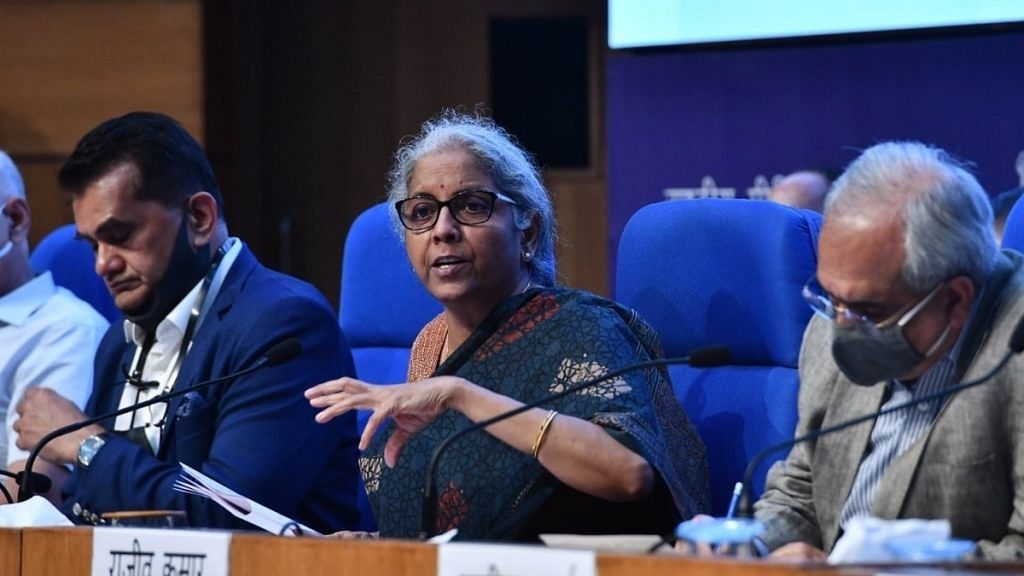New Delhi: The Narendra Modi government is not selling either government-owned land or assets as part of its ambitious Rs 6 lakh crore asset monetisation plan, Union Finance Minister Nirmala Sitharaman said Monday.
The government’s asset monetisation plan, spread across four years through 2024-25, encompasses assets like roads, power-generation facilities, airports, sports stadiums, warehouses, gas pipelines and railway stations and trains.
The Centre plans to encourage both foreign and private investment to utilise or redevelop these assets owned by the government and public sector undertakings (PSUs) to unlock economic value.
Speaking at an event held to launch and detail the asset monetisation pipeline, Sitharaman sought to allay fears that the government was selling off its land and assets.
“The ownership of these assets (listed for monetisation) remains with the government. There will be a mandatory hand-back. They will have to be given back (to the government) after a certain time,” she said, stressing that time has come for India to earn more from its assets.
She added that the contractual partnerships between the government and the private entity will be accompanied by performance milestones and standards.
Also read: Modi govt plans to raise Rs 6 lakh cr from infra assets sale in four years
What the plan says
According to the plan laid out, the government is aiming to raise Rs 88,000 crore through asset monetisation in the current fiscal, Rs 1.6 lakh crore in 2022-23, Rs 1.8 lakh crore in 2023-24 and Rs 1.6 lakh crore in 2024-25.
The proceeds will be used to finance the Rs 110 lakh crore national infrastructure pipeline.
“Asset monetisation is about utilising the existing asset base and using the proceeds for new infrastructure creation. Our objective is to enhance capex spending, resulting in a multiplier impact on growth and employment and reviving credit flow,” said Niti Aayog chief executive Amitabh Kant at the event.
The assets to be monetised are spread across 20 asset classes and 12 line ministries, he said.
Different models will be followed for monetisation depending on the nature of the assets like operate, maintain and then transfer, or redevelop, operate, maintain and then transfer.
Roads and railways biggest contributors
Roads and railways will together constitute more than half of the total monetisation pipeline in terms of value, according to government estimates.
While the asset monetisation proceeds from roads is estimated to be at Rs 1.6 lakh crore, the monetisation from railways is pegged at Rs 1.5 lakh crore over the four-year period.
For roads, the government plans to use a mix of its toll-operate-transfer or TOT model as well as the investment trusts or InvIT model to monetise.
Dedicated freight corridor, railway station development, passenger train operations, spot stadiums and hill and Konkan railways are some of the assets lined up for monetisation in the railways sector.
In the power sector, hydro and solar energy generation assets of state-owned firms are listed to be monetised in addition to the transmission lines. In the oil and gas sector, petroleum and natural gas pipelines owned by oil PSUs are listed for monetisation.
The huge warehousing space owned by Central Warehousing Corporation and Food Corporation of India are also lined up.
(Edited by Amit Upadhyaya)
Also read: Finance Ministry summons Infosys CEO Salil Parekh over persistent glitches on I-T website
